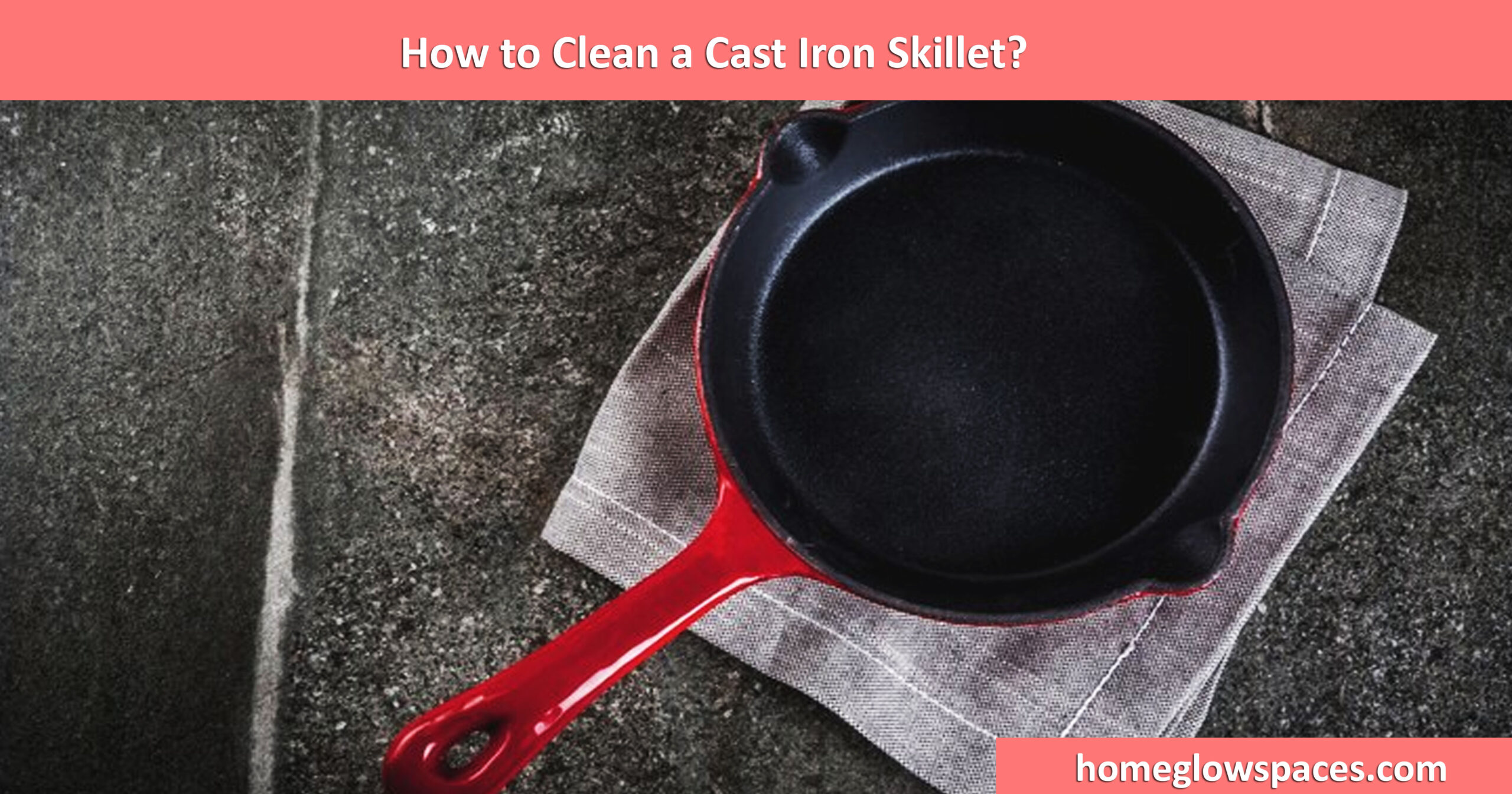Cast iron skillets are beloved by many home cooks for their durability and superior cooking abilities. They can endure for generations if given the right care. However, cleaning a cast iron skillet requires a little more attention than your standard pan. Let’s dive into how you can keep your skillet in top-notch condition!
Why Cast Iron Skillets Need Special Care
Cast iron skillets are unique because of their material. Cast iron can rust easily if not treated correctly, and it also requires regular seasoning to maintain its non-stick surface. A well-maintained skillet will cook food evenly and develop a natural, non-stick coating, but neglecting it can lead to rust, poor performance, and even damage.
Materials You’ll Need
To clean your cast iron skillet, you don’t need any fancy gadgets. Here are some basic tools you’ll need:
- A stiff brush or sponge
- Kosher salt (for deep cleaning)
- Cooking oil (vegetable, flaxseed, or grapeseed oil work well)
- A soft cloth or paper towels
- A scraper or plastic spatula (optional for tough spots)
How to Clean Your Cast Iron Skillet Step-by-Step
Step 1: Remove Food Residue
After cooking, use a scraper or a stiff brush to remove any stuck-on food. Make sure to do this while the skillet is still warm, as it makes the process easier. Keep food out of the pan for as little time as possible.
Step 2: Scrub with Warm Water and a Brush
When it comes to cleaning, warm water is your best friend. Gently scrub the skillet using warm water and a stiff brush. Avoid using soap, as it can strip away the seasoning that you’ve worked so hard to build.
Step 3: Dry Immediately and Thoroughly
Once your skillet is clean, drying it thoroughly is crucial. Wipe it down with a soft cloth or paper towel immediately after washing. You can also place it on a burner over low heat to ensure every drop of water evaporates. This prevents rust from forming.
Step 4: Spread a Light Coat of Lubricant
While the skillet is still warm, apply a thin layer of oil using a cloth or paper towel. This step is essential to keep the skillet seasoned and prevent rust. Make sure to use a high-smoke-point oil, like vegetable or grapeseed oil.
Deep Cleaning for Stubborn Stains
Removing Stubborn Food Residue
If food is particularly stubborn, sprinkle a bit of coarse salt into the skillet and scrub it with your brush. Salt acts as a natural abrasive and helps remove tough particles without damaging the surface.
Restoring a Rusty Cast Iron Skillet
If your skillet has developed rust, don’t panic! You can restore it by scrubbing the rust away with steel wool, rinsing it thoroughly, and re-seasoning it. Make sure to dry it completely and coat it with oil before storing it.
Seasoning Your Cast Iron Skillet
Seasoning is the process of baking oil into the cast iron to create a natural, non-stick surface. After each use, a light seasoning is recommended, but periodically, a deeper seasoning may be necessary.
Steps for seasoning:
- Clean the skillet thoroughly.
- Oil should be applied thinly to the whole surface, including the handle.
- Bake the skillet upside down in the oven at 400°F (200°C) for about an hour.
- Let it cool in the oven.
Avoiding Common Mistakes
Avoid soaking your skillet in water. Water can lead to rust, which is the enemy of cast iron. Additionally, be cautious with soap. If you do use it, be sure to re-season afterward to maintain the non-stick coating.
Storing Your Cast Iron Skillet Properly
To store your cast iron skillet, ensure it’s completely dry and lightly oiled. Store it in a dry place, and avoid stacking it with other cookware unless you use a cloth between the items to protect the surface.
When to Re-Season Your Skillet
If food starts sticking or the surface appears dull, it’s time to re-season your skillet. A well-maintained skillet should have a glossy, smooth surface.
Why Cast Iron Cookware Lasts for Generations
With proper care, cast iron skillets are incredibly durable and can be passed down through generations. Many families treasure these skillets, as they develop character and cooking ability over time, making them priceless heirlooms.
Conclusion
Taking care of your cast iron skillet doesn’t have to be difficult. With the right tools and techniques, you can keep your skillet in perfect condition for many years. Remember, a little extra care goes a long way when it comes to cast iron!
Frequently Asked Questions
Can I clean my cast iron skillet with soap?
Yes, but sparingly. If you use soap, re-season your skillet afterward.
Which oil is ideal for seasoning a skillet made of cast iron?
Oils with a high smoke point, like flaxseed, grapeseed, or vegetable oil, are best.
How often should my cast-iron skillet be seasoned?
You should lightly season it after every use and do a deep seasoning when it starts looking dull.
What do I do if my skillet gets rusty?
Use steel wool to remove the rust from the skillet and then reseason it.
I have a cast iron skillet; can I use it in the oven?
Yes, cast iron skillets are oven-safe and perfect for recipes that require cooking in the oven.



